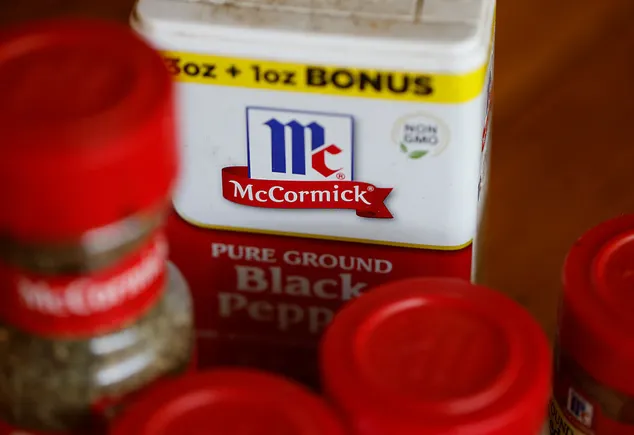McCormick Faces $90 Million Annual Loss Due to Tariffs
McCormick recently revealed that the Trump administration’s tariff policies could potentially cost the company up to $90 million per year. The spice giant is grappling with increased prices for spices that cannot be grown commercially in the United States.
As a response to the rising costs of certain commodities, McCormick is considering implementing selective price hikes in the fourth quarter. Executive Vice President and CFO Marcos Gabriel mentioned during an earnings call that the company is experiencing higher costs than initially anticipated.
To counteract a significant portion of the tariff expenses, McCormick is utilizing advanced analytics to identify alternative sourcing locations where feasible, as stated by Gabriel.
McCormick’s Strategy to Mitigate Tariff Impact
CEO Brendan Foley acknowledged that while McCormick is exploring alternative sourcing options for imported agricultural products, some raw materials cannot be substituted as they are not available commercially in the U.S. With a portfolio of approximately 17,000 ingredients across 90 markets, the company is diversifying its sourcing locations to reduce reliance on any single country.
With the unpredictable nature of trade negotiations resulting in varying duties based on geography, McCormick is proactively taking measures to mitigate the impact. Gabriel emphasized that the company is leveraging all available strategies to navigate the challenges posed by tariffs.
Consumer demand for global and exotic flavors like yuzu or lychee continues to rise, particularly as individuals seek to replicate restaurant experiences at home amidst persistent inflation. These trendy ingredients, native to regions outside the U.S., may see price increases due to tariffs.
Even McCormick’s annual “flavor of the year,” the Aji Amarillo pepper, is not exempt from tariff implications. Originating from Peru, the pepper is currently subject to 10% baseline tariffs.
Impending Tariffs and Industry Impact
Following a 90-day pause, sweeping tariffs are set to be imposed on countries without existing trade agreements starting July 9. This move is expected to drive up prices of various spices, including table salt, black pepper, vanilla, cinnamon, and nutmeg, according to the American Spice Trade Association.
The association highlighted in a letter to the Trump administration that the majority of spices cannot be feasibly grown in the U.S. in quantities suitable for commercial use. Consequently, the increased costs will likely be passed on to consumers or absorbed by food manufacturers.
Despite the challenges posed by tariffs, McCormick reported second-quarter earnings that surpassed analyst expectations, with sales increasing by 1% driven by higher volumes. The company is observing heightened interest from food manufacturers seeking to enhance the healthiness of their product portfolios or eliminate artificial additives.

